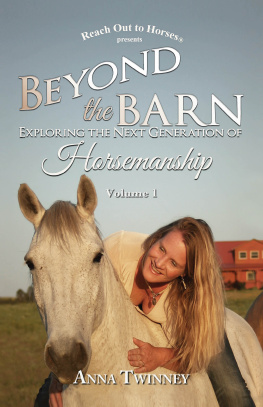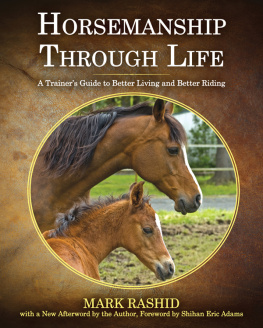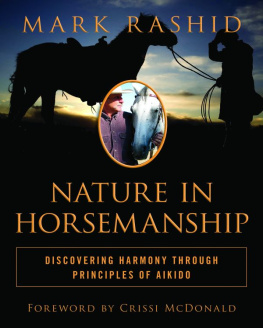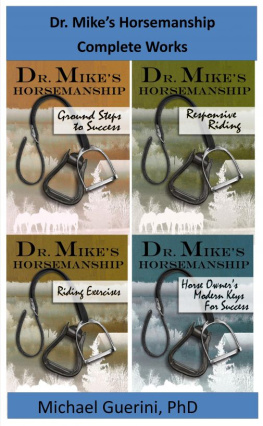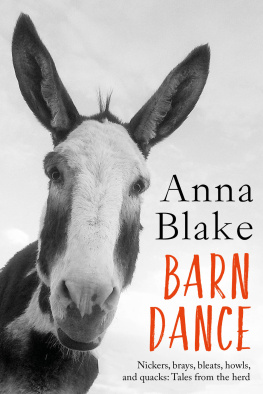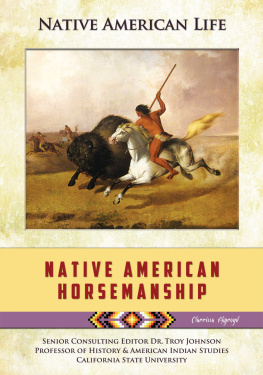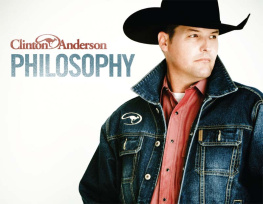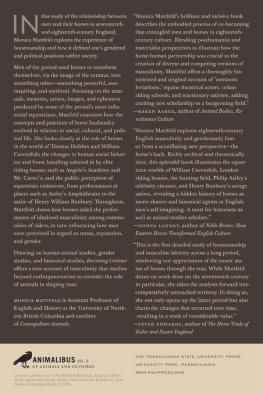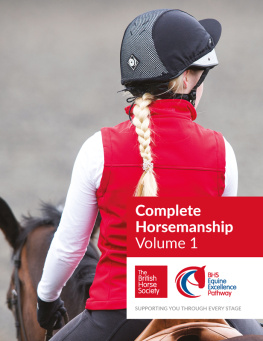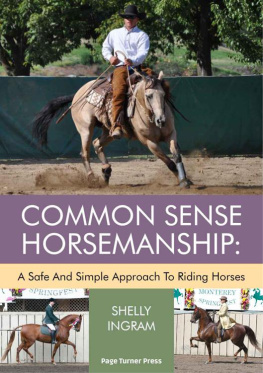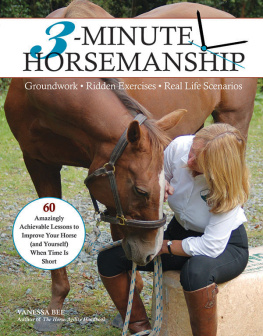
Beyond the Barn: Exploring the Next Generation of
Horsemanship: Volume 1
by Anna Twinney
2020 by Reach Out to Horses
All rights reserved. No part of this book, in part or in whole, may be reproduced in any written, electronic, recording, or photocopy form without the prior written permission of the publisher except for the inclusion of brief quotations in a review.
Published by
Reach Out to Horses
PO Box 1913
Elizabeth, CO 80107
www.ReachOuttoHorses.com
ISBN: 978-1-7325381-2-2 (print)
ISBN: 978-1-7325381-3-9 (E-book)
LCCN: 2020906667
Copy/Content Editing by John Wilcockson
Book Design by Nick Zelinger, NZGraphics.com
Cover Photo by Tess Helmandollar
Ebook Conversion by Veronica Yager, YellowStudiosOnline.com
First Edition
Printed in the United States of America
Disclaimer:
WORKING WITH HORSES IS A HAZARDOUS ACTIVITY THAT CAN RESULT IN INJURY AND/OR DEATH.
The authors of this book make no warranties or representations, and assume no liability concerning the validity of any advice, opinion, example, demonstration, or recommendation expressed in this publication.
ALL INDIVIDUALS RELYING UPON THIS MATERIAL DO SO AT THEIR OWN RISK.
All information shared in this publication is meant to facilitate health, balance and well-being in an animal. All written materials, lectures, discussions, questions and answers, references to other modalities, products, and practitioners are all ways in which information may be furnished in workshops and consultations. At no time is this information meant to be a replacement for traditional medical care, veterinary treatment, or a medical diagnosis for illness or injury.
Refer to a licensed medical or veterinary practitioner for medical care and to appropriate professionals for the service you are seeking.
Contents

Part I
The Movement into a Methodology
Beginning to Build a Bond Through Communication
C reating a trust-based relationship is the foundation to all interaction and training with your horse. Not only will you achieve better results in the show ring, you will also begin to become one with your horse. Together you will achieve optimum performance while learning about one another and growing as individuals.
Communication with our horses begins upon approach. We communicate non-verbally through our body language, our energy, and simply through our being. It is a known fact that about 90 percent of communication is non-verbal and only 7 percent is spoken. Horses can read us better than we can read ourselves! Upon your approach, they will know how you feel in any given moment, who you are, how you carry yourself, and also your intention. It is important therefore that you are aware of the movements you make and the thoughts you have.
Any excess baggage should be left outside the paddock, stall, or arena, as it is rather unfair to your four-legged friend to take the rap of your day.
Displacement occurs readily through frustration, which is caused by a lack of understanding and creativity and can easily rear its head at the end of a hard days work. Knowing and understanding your horse and his communication system will allow for a trust-based partnership to build.
Wild horses communicate in a language called Equus, which is nonverbal and much like signing for the deaf. Each motion, such as a flick of the ear and a swish of the tail, means something.
It is a language that we are able to interpret and customize through our own body language. Spending time with your horse and observing others in their natural habitat will allow you to experience the language first hand. Try to be present as you notice the movements of the horse and subsequent responses. Every horse has his own personality, character, and role within the herd, and as you familiarize yourself with the group these will become more apparent to you. Behavior will be emphasized during feeding time and rankings are more easily identifiable during this time. Knowing these aspects of your horse will allow you to understand the way horses think and why they respond to certain situations as they do.
Although, for the most part, the language of Equus is non-verbal for preservation purposes, on occasion horses will also become vocal. Domestic horses feel comfortable in their environment to whinny, nicker, snort, squeal, and even snore. Each horse will have his own way of expressing likes and dislikes, fears and concerns, as well as happiness and excitement. Knowing your horses natural day-to-day behavior will allow you to recognize unusual and abnormal behavior.
A less-spoken-about form of communication is your intuition, also known as your sixth sense, or, as many famous horsemen have coined it, the feel. This is a form of inter-species communication. We have all experienced times when we are particularly connected to a brother, sister, or close friend, and they have been on our minds for a while. When you finally pick up the phone to call them, both of you mention that youve been thinking of one anotherthis, believe it or not, is a basic form of telepathy. Your intuition plays a huge part in your relationship with your horse. You may be touched by a feeling or emotion that you know is not your own. You may receive a glance of a vision, hear words, or have a vivid dream. Because it is very personal to everyone, its hard to describe and teach intuition to others. As you are able to confirm your intuitive hits, you will learn to trust your intuition and this form of communication will become second nature to you.
There are so many facets to encompass when you speak about communication, but I would like to emphasize that horses are social animals. They love to interact, play in groups, or take part in mutual grooming. Find out what your horse likes, what motivates him and be a part of his daily life without an agenda. Instead of thinking what can my horse do for me today, think what it is that you can do for your horse!
Horses as Master Teachers
H orses are masters at assessing your body language. They are also able to read your thoughts, intentions, and ultimately the energy surrounding your very being. Even before your arrival at the barn, they can sense how you feel and often reflect it back to you through their being and actions. Horses dont ask much of us, but the most important thing they do ask is that you are present in their presence.
YOU CAN DO THIS BY:

